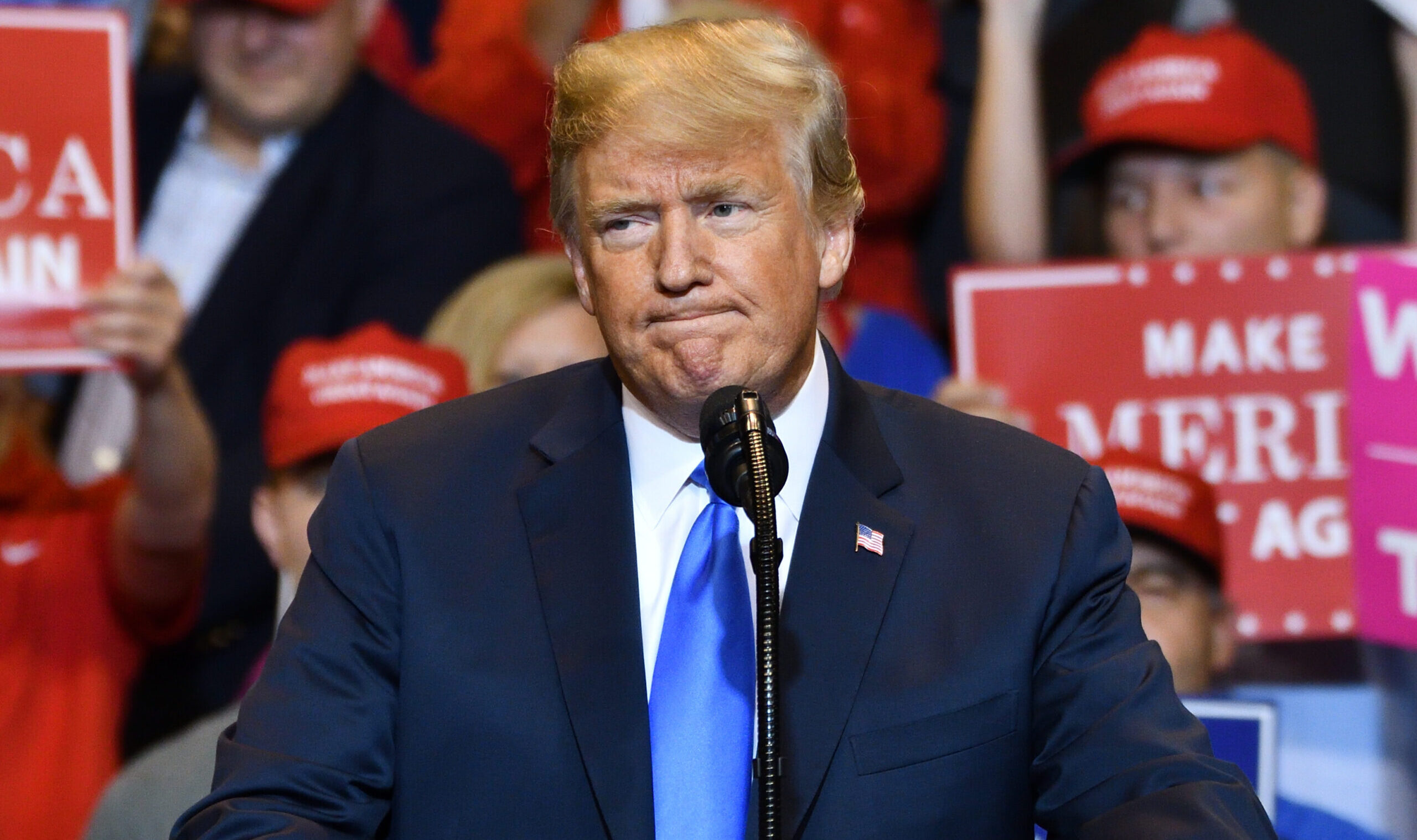Politics
The former president has failed to capitalize on big moments and a weak opponent.

It is like one of those football games where each team fumbles repeatedly as it approaches the red zone. Neither can put together any kind of sustained drive. After the first Trump assassination attempt, the country was probably ready to give the former president a decisive lead: all he had to do was give a calming, unifying, somewhat humble convention speech, perhaps find some providential meaning in his miraculous turn of the head the moment before the shots were fired, and wrap it up in 35 minutes of so. He had been president before, done a fairly good job, and many were inclined to forget about his ridiculous behavior between the 2020 election and January 6, 2021. There was no national clamor for him to modify his hardline positions on immigration, which was broadly popular, or become a born-again Ukraine hawk. Even the foreign policy establishment was willing to concede quietly that the proxy-war NATO expansion gambit had probably failed—at a price paid by many thousands of young Ukrainian and Russian men.
But Trump of course could not manage that, and those who in the Eastern time zone went to bed sometime before the meandering address was finished, well after midnight, awoke to Democratic strategists claiming, somewhat to their surprise, that it was still a winnable race.
Then came the remarkable inner party coup against Joe Biden, which was, qua political maneuver, as deft as anyone my age had ever seen in American politics. Kamala Harris was suddenly the Democratic nominee, and for a sustained month of unimaginably fawning media coverage, no one could quite remember why it was that Democratic politicians and fundraisers had for years been shaking their heads about the vice president, and wondering what maneuver Biden could execute to get her off the ticket. The month of August was a reminder that a heavy preponderance of the media favors Democrats, and an even greater one hates Donald Trump: We were treated to a month of memes about “brat” Kamala and the politics of joy. And the polls moved, inevitably, in Kamala’s direction. But, somewhat surprisingly, not that much.
Kamala Harris made her own miscues. Perhaps out of some fear of being overshadowed, she refrained from wrapping up Pennsylvania with her veep pick, instead choosing a mediocre and almost unknown left-wing Minnesota politician who grows less visible every week the campaign progresses. Her refusal to give an interview to the press eventually became a story of its own. Prior to the first debate, even the pro-Kamala press was running “Is the honeymoon over?” pieces. Since Kamala was unable to speak to the press herself, the Trump campaign had the opportunity to define her political persona (for those interested) in their own rallies, which might generate at least some coverage. There is ample footage of the vice president taking positions—on the police, on abolishing ICE, on the Floyd riots, on “equity”—that are well outside the mainstream. Occasionally, remarkably, the press even did some digging of their own: CNN, generally heavily anti-Trump, ran a segment showing Kamala favoring taxpayer-funded sex change surgeries for illegal alien prisoners—a position so nutty it seemed it might be parody. On the eve of the second debate, some felt Trump, with a good performance, could open up a meaningful lead.
But of course he did not. In the debate, Vice President Harris did not articulate any of her own policy positions, or explain whether or why they had evolved over the past years. But she did quite effectively goad Trump into talking about the size of his rallies, the purportedly stolen election, and any number of issues where he would prove incapable of being calm and reassuring. “They’re eating the cats” (which he actually said) is one way of describing the escalating immigration crisis the Biden-Harris administration has brought about through its open-borders policy—and the border almost certainly will be reopened if Harris wins and voters have forfeited their right to weigh in on the issue—but it may not be the best way to sway undecided voters. (Though, to be fair, the cat memes do shine a light on cultural differences in ways that sociological discussions of Santeria and voodoo might not.)
Subscribe Today
Get daily emails in your inbox
Now another man—this time a pro-Ukraine fanatic—has tried once more to assassinate Trump, and many pro-Harris voices in the media are more or less saying that Trump himself is at fault. Somewhere in political science there must be a metric that measures the breakdown of democratic governance. If an unorganized riot of people convinced an election is fraudulent belongs somewhere on the matrix (it does, if not particularly high), it is not obvious that leading journalists who claim that a candidate is responsible for people trying to kill him should be less prominent on it.
On the existing information, it is not at all clear what will move the needle in the battleground states. The media will remain pro-Harris, though there are certainly some pockets of the establishment which wonder whether the wave of progressivism her victory will usher in is desirable. My own surmise is that some foreign policy surprise—an Israeli invasion of Lebanon, Israel’s unanticipated vulnerability to rockets, the collapse of the Ukrainian army in the Donbas, a Zelensky success in escalating the war through missile strikes into Russia, or some event on that scale—will prove influential in the final weeks. Obama opened up a substantial lead against McCain only when he showed himself (to voters) better able to understand them, listen to smart people, and deal with the financial crisis than his hawkish war-hero opponent. Before the crisis happened, that was not a predicted outcome.
In some kind of comparable moment of fear and uncertainty, who would seem more reassuring—the bombastic Trump, or Kamala, who has still not managed to give a credible interview? My hunch is that with media assistance, Kamala would be able to fake it better.








































































